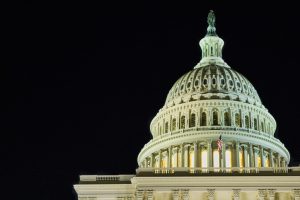The One Big Beautiful Bill Act has passed.
President Trump’s “One Big Beautiful Bill” (OBBB) reshaped U.S. tax policy with major reforms for individuals, businesses, and international transactions. From deductions to depreciation, estate planning to opportunity zones, the OBBB impacts nearly every taxpayer.
Read our full overview of the OBBB’s tax provisions.
House and Senate proposals largely align on business provisions
We recently reported on several key business tax provisions included in the House-passed version of the “One Big, Beautiful Bill” (OBBB), which features a mix of permanent and temporary changes to expiring tax provisions, new proposals introduced by President Trump during his 2024 campaign, and significant alterations to energy-related incentives. For context and a deeper dive into these provisions, read our previous article.
On June 16, 2025, the Senate Finance Committee released its draft version of the OBBB. As expected, the Senate version reflects notable shifts, with a more business-friendly stance and increased specificity, especially regarding the long-debated research and experimental (R&E) expensing provisions. The draft introduces retroactive relief options for small businesses, though changes are still possible before the bill reaches its final form.
Below is a high-level comparison of several key business and international tax provisions in both versions of the OBBB. The focus is on areas such as expensing, business interest limitations, the Qualified Business Income (QBI) deduction, and select international provisions.
| Provision | House-Passed Version | Senate Finance Committee Draft |
| §174 – Expensing of Domestic Research and Experimental Expenditures | Full expensing restored for tax years after 2024 through 2029. Amortization resumes after 2029. | Full expensing made permanent after 2024. Small taxpayers may retroactively elect out of capitalization for 2022–2024, with amended returns. Large and unelecting small taxpayers may use Form 3115 to deduct unamortized costs over 1–2 years. |
| §168(k) – Bonus Depreciation | 100% bonus depreciation for qualifying property acquired after Jan. 19, 2025, through 2029; phases out thereafter. Special rules for Qualified Production Property (QPP). | 100% bonus depreciation made permanent for property acquired after Jan. 19, 2025. No phase-down. QPP provisions similar to House. |
| §179 – Expensing of Depreciable Business Assets | Dollar limit increased to $2.5 million; phase-out threshold increased to $4 million for tax years after 2024. | Same as House. |
| §163(j) – Business Interest Limitation | EBITDA addback restored and extended through 2029. | EBITDA addback restored and made permanent. |
| §199A – Qualified Business Income (QBI) Deduction | Deduction increased from 20% to 23% and made permanent. W-2 wage and property limitation phase-in thresholds raised to $400K (single)/$800K (joint). Greater access for specified service trades or businesses. | Deduction maintained at 20%. Senate version follows House limitation threshold adjustments. |
| §250 – Foreign-Derived Intangible Income (FDII) Deduction | Deduction reduced from 37.5% to 36.5% for post-2025 tax years. | Deduction reduced further to 33.34%. Deemed tangible income return repealed. |
| §250 – Global Intangible Low-Taxed Income (GILTI) Deduction | Deduction reduced from 50% to 49.2%. | Deduction reduced to 40%. GILTI renamed “net CFC tested income”; deemed tangible income return repealed. |
| §59A – Base Erosion and Anti-Abuse Tax (BEAT) | Rate increased to 10.1%; repeal of scheduled rise to 12.5%. | Rate increased to 14%. Introduces “Super BEAT” for certain foreign-parented U.S. corporations from “unfair foreign tax” jurisdictions. |
Both versions offer substantial business tax relief, but the Senate draft pushes further on international reforms and small-business R&E incentives. The above table is merely a summary of the noted provisions; there are myriad statutory nuances supporting and detailing their application that could affect the tax results achieved by specific taxpayers.
While a self-imposed GOP deadline of July 4 exists, many lawmakers remain skeptical about the timeline. However, the bill’s inclusion of a debt ceiling increase—projected to become urgent by mid-July—adds pressure to finalize legislation.
If enacted, the OBBB would mark a significant overhaul of the business tax code. The provisions outlined above are expected to influence critical areas such as cap-ex planning, M&A decisions, and earnings distributions. Many of the changes would be effective for 2025, so there is an aspect of retroactivity to consider. Business leaders should monitor developments closely and evaluate their readiness for what may be the most consequential tax reform in years.
Content provided by LBMC tax expert Dennis Metzler.
LBMC tax tips are provided as an informational and educational service for clients and friends of the firm. The communication is high-level and should not be considered as legal or tax advice to take any specific action. Individuals should consult with their personal tax or legal advisors before making any tax or legal-related decisions. In addition, the information and data presented are based on sources believed to be reliable, but we do not guarantee their accuracy or completeness. The information is current as of the date indicated and is subject to change without notice.

